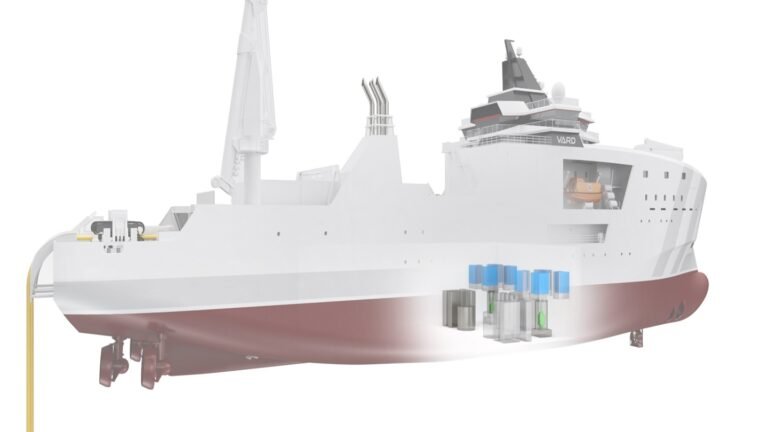Vard, in collaboration with the Norwegian University of Science and Technology and other industry stakeholders, will evaluate fourth-generation nuclear reactor technologies for their application in commercial maritime operations as part of the NuProShip I project.
The project has conducted a comprehensive review of 99 companies developing advanced reactor technologies, resulting in the selection of three reactor types.
Kairos Power from the US is working on a fluoride high-temperature molten salt reactor using TRISO fuel particles, designed for robust and efficient operation.
Ultrasafe, also from the US, is developing a helium-cooled gas reactor that employs TRISO fuel particles.
From Sweden, Blykalla’s lead-cooled reactor concept uses uranium oxide as fuel, offering better efficiency with advanced cooling mechanisms.
TRISO fuel particles are a key focus due to their durability and containment properties, according to the company.
Vard, alongside partners such as DNV, the Norwegian Maritime Administration, Knutsen Tankers, and IDOM, is working on integrating these reactor systems into ship designs and overcoming technical challenges to enable the future use of nuclear-powered ships.
The NuProShip I project will pave the way for NuProShip II, a two-year project aimed at refining nuclear propulsion solutions for maritime applications.
This next phase will bring insurance companies into the consortium, a vital step in assessing the business viability of nuclear technology in the shipping industry.
In December 2024, Vard delivered a cable-laying vessel to Danish subsea specialist NCT Offshore in under two years since signing the contract.
Built on the Vard 9 01 design, the vessel features better sea-keeping, enhanced station-keeping capabilities, and fuel efficiency, making it ideal for sustainable subsea operations.

